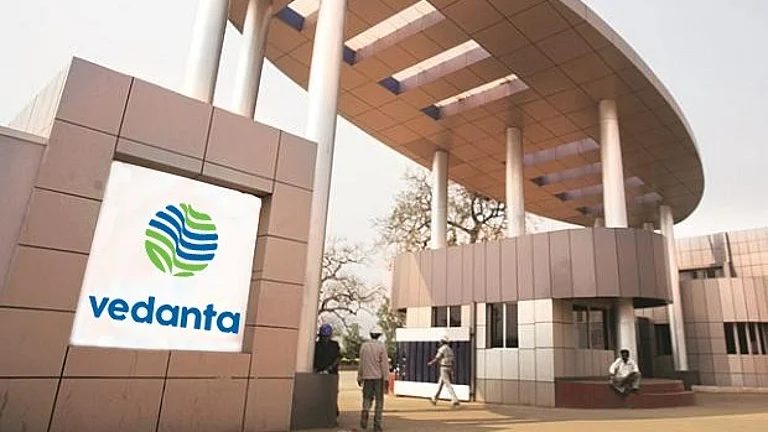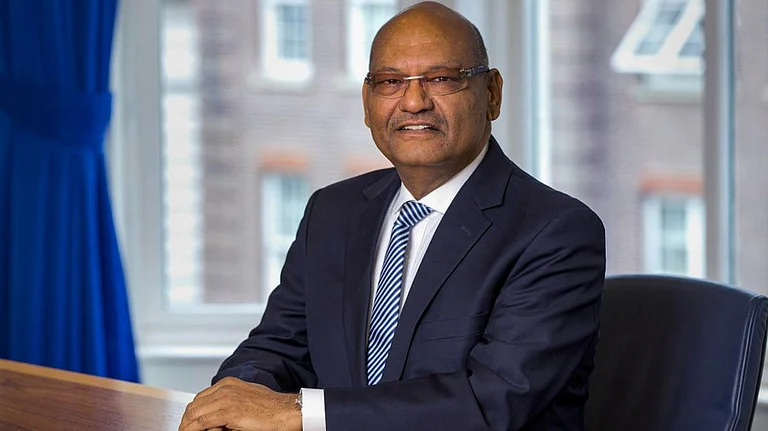American short seller Viceroy Research has released another report against Indian mining giant Vedanta, this time raising questions about the shareholding pattern of its promoter Agarwal family.
Short-Seller Viceroy Accuses Vedanta Promoters of Hidden Stake; Company Rejects Charge
The short seller claims that the Anil Agarwal-led promoter group "appears to control hidden shareholdings in Vedanta Ltd and Hindustan Zinc Limited (HZL) through undisclosed fronts — the Bhadram Janhit Shalika Trust (BJST) and its subsidiary PTC Cables Pvt Ltd (PTCC)"
The short seller claims that the Anil Agarwal-led promoter group "appears to control hidden shareholdings in Vedanta Ltd and Hindustan Zinc Limited (HZL) through undisclosed fronts — the Bhadram Janhit Shalika Trust (BJST) and its subsidiary PTC Cables Pvt Ltd (PTCC)." It adds that these entities "function more akin to political lobbying fronts for influence peddling and to plug promoter vehicles with cash."
According to Viceroy, these entities have collected ₹1,499 crore ($175.4 million) in dividends from Vedanta and HZL since FY20, although BJST has been a significant Vedanta shareholder since at least June 2009.
This is the fourth report by the US short seller against Vedanta. On 9 July, Viceroy alleged that Vedanta’s London-based parent company, Vedanta Resources Ltd (VRL), is a “parasite” holding company with no significant operations of its own — propped up entirely by cash extracted from its “dying host” Vedanta Ltd (VEDL). The firm claimed that VRL’s efforts to meet its debt obligations through the Bombay-listed VEDL “resemble a Ponzi scheme,” with VEDL stakeholders, including VRL creditors, as the “suckers.”
Viceroy also revealed that it is shorting debt held by Vedanta Resources.
Since then, the mining company has defended itself, calling Viceroy’s reports “false propaganda.” On 10 July, during Vedanta’s annual general meeting (AGM), promoter Anil Agarwal responded: “As far as this report which has come [out], we are so transparent. My fundamental value is to remain committed to disclosure and transparency — and this is our strength.”
Questions Over Vedanta's Shareholding
Viceroy Research alleges that the Bhadram Janhit Shalika Trust (BJST), originally set up by Sterlite as an employee welfare trust, is now misused and functions as a political lobbying front under the Agarwal family’s control. While it was meant to serve employees, the trust allegedly acts in the promoters’ interests. Viceroy highlights red flags in BJST’s filings, such as the use of personal and affiliated addresses, undisclosed political donations, and no evident record of serving employee welfare since 2004.
BJST once held a major stake in Vedanta but transferred it to its own subsidiary, PTC Cables Pvt Ltd (PTCC), which continues to benefit from Vedanta’s dividends.
PTCC, now wholly owned by BJST, is described by the short seller as a shell entity with no employees or operations. It allegedly exists to quietly hold Vedanta shares and funnel funds to promoter-linked companies. Despite being located in a small textile market in Kolkata and operated by directors closely tied to Vedanta, it holds significant equity in Vedanta and HZL. Viceroy claims PTCC’s sole function is to channel Vedanta’s dividend income — over ₹427 crore ($50 million) in FY24 — into promoter-controlled firms like Sterlite Power through interest-free loans and equity conversions, thus recycling group funds while avoiding transparency and regulatory oversight.
Vedanta has denied these allegations.
“These assertions are baseless,” a spokesperson for the company told Mint, adding neither BJST nor PTCC are part of the promoter group as defined under applicable regulations, and their shareholding has been transparently disclosed in public filings.
Vedanta's AGM Termed a 'Mockery'
Viceroy criticised Vedanta Limited’s AGM held on 10 July as a “staged and uninformative event,” alleging it was dominated by pre-arranged callers praising chairman Anil Agarwal — including one who sang in his honour. According to the short seller, the meeting failed to address key issues raised in its earlier reports, including the justification for brand fees, unsustainable dividend payments, and related-party transactions.
Viceroy claims no institutional investors or independent shareholders were allowed to ask questions. When one caller raised concerns about financial practices, both Agarwal and CFO Ajay Goel allegedly deflected or ignored the queries. The short seller also disputed Goel’s statement that Vedanta’s subsidiaries are audited by global Big Four firms, pointing out that many are in fact audited by smaller, lesser-known firms.
Viceroy further dismissed Vedanta’s promised demerger as unrealistic and repeatedly delayed, citing legal and regulatory roadblocks. It noted recent objections from the Ministry of Petroleum and the National Company Law Tribunal’s (NCLT) rejection of the TSPL demerger due to undisclosed liabilities. With multiple legal hearings still pending, Viceroy argued that completing the demerger by September 2025 — as claimed by Agarwal — is implausible.
The firm accused Vedanta of using the demerger narrative to distract from core financial concerns, including rising net debt and dividends paid out of borrowings. Viceroy also stated it had emailed questions directly to Vedanta’s management but had received no response.
Proxy Advisor Backs Vedanta
Proxy advisory firm InGovern has backed Vedanta in the face of Viceroy’s latest allegations, urging stakeholders to view such short-seller reports in context. It noted that these reports often serve the financial interests of their authors and tend to focus on negative interpretations of public data.
“The recent Viceroy Research report on the Vedanta Group has parallels to the high-profile Hindenburg Research report on the Adani Group in early 2023,” InGovern stated. “Both cases highlight how activist short-seller reports can trigger significant market volatility and force a re-examination of corporate governance and financial practices at large Indian conglomerates.”
InGovern pointed out that holding company structures — a key point of criticism in Viceroy’s report — are common and legitimate in capital-intensive sectors like infrastructure, mining, and energy. It cited examples such as the Adani Group, Tata Group, Reliance Industries, and global peers like Glencore and Anglo American. These structures, it said, help manage regulatory, tax, and operational complexities.
InGovern also raised concerns over foreign short sellers not registered with SEBI issuing reports on Indian companies without regulatory scrutiny, despite influencing Indian markets. It pointed out that such entities often have financial interests in the companies they criticise but may evade regulatory summons.
This, it said, creates a regulatory imbalance, as domestic analysts are subject to SEBI rules while offshore players operate without accountability. On Vedanta’s demerger, InGovern reiterated its support — along with other proxy advisors — citing potential benefits such as better business focus, improved capital access, and clearer investor value.

